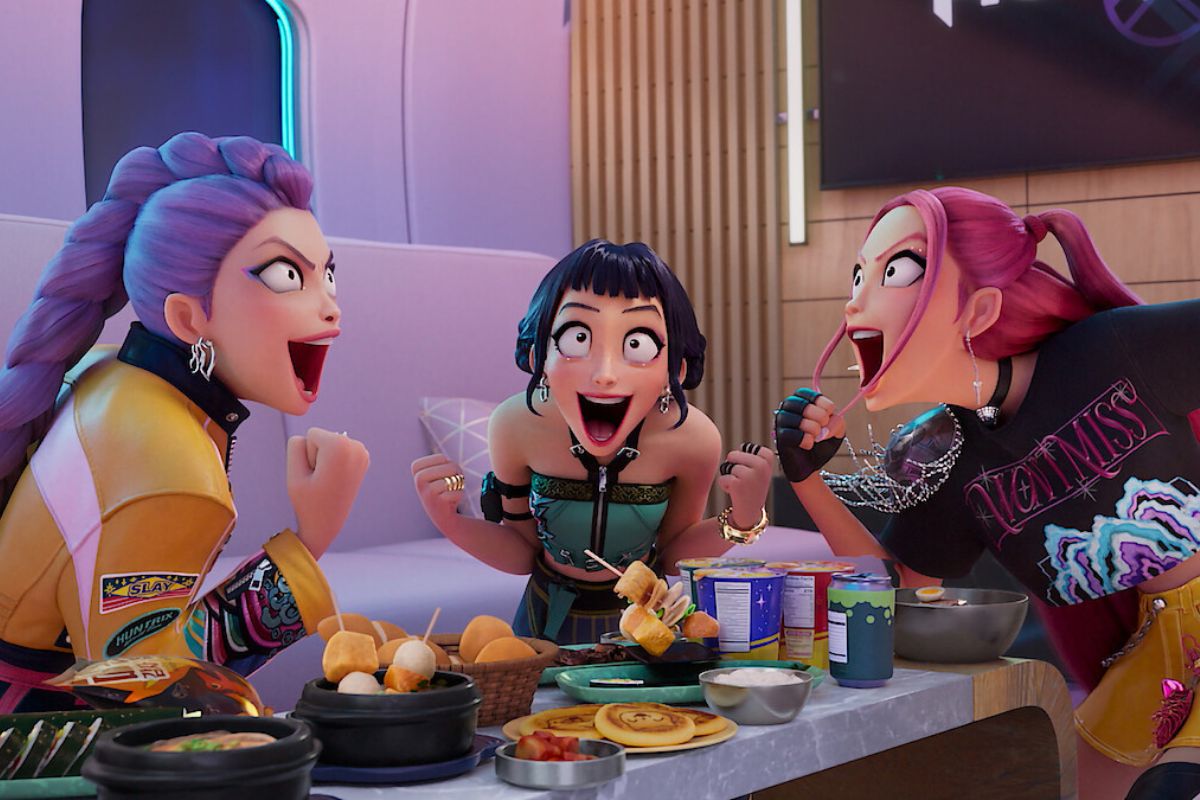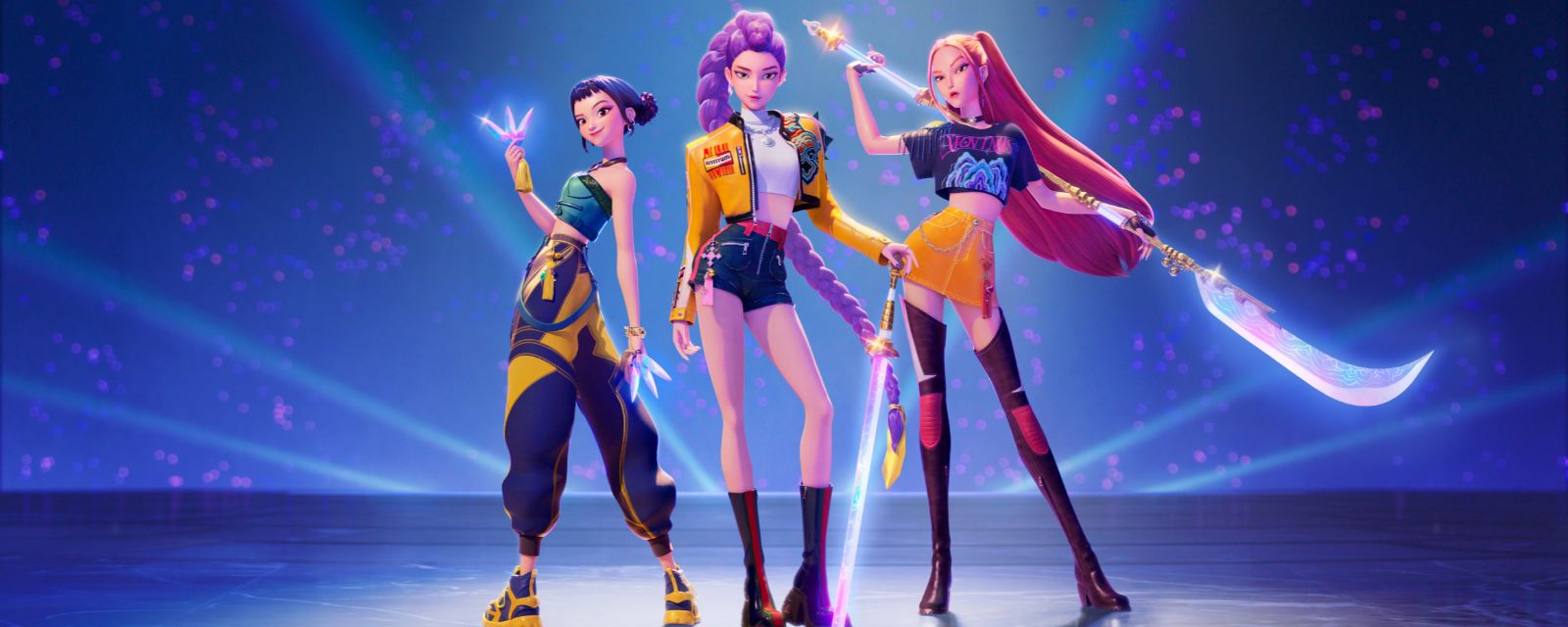'Golden' Lessons from KPop Demon Hunters
If you’re anything like me, the entirety of the second half of your summer has revolved around a trio of animated women - Rumi, Zoey, and Mira, the characters who make up the band HUNTR/X in Netflix’ smash hit, KPop Demon Hunters.
Not only does the movie have a record-breaking soundtrack full of BOPS, it tells a story that has resonated with audiences worldwide and has become the second-most viewed movie in Netflix streaming history. It is a story of pain, connection, authenticity, and acceptance. Here are a few of my favorite therapeutic takeaways from that story…
1. Shame is a powerful, powerful emotion.
Let’s start here: shame, like all emotions, is neither “good” nor “bad”. Challenging? Yes. Powerful? Absolutely. “Bad”? Not exactly. Shame serves a purpose and, more specifically, a survival purpose.
As early humans evolved, we lived in small groups with other humans. We relied on those other humans for food, shelter, security, etc. In other words, we needed to be connected to them if we were to survive. In this setting, what might have happened, then, to a person whose behaviors ostracized them from their small survival group? Likely, death.
To prevent isolation, separation, and eventual death, our nervous systems evolved to send emotional signals that let us know when we are breaking social norms or performing actions that are likely to leave us alone and abandoned. Enter shame.
The frequency in signals of shame has grown exponentially as social norms have shifted and humans have found more and more ways to tell other humans they are “wrong”. Systems like colonialism, patriarchy, and capitalism have infused our world with feelings of shame around race, gender identity, physical appearance, socioeconomic status, sexuality - the list goes on.
In this world, we have become conditioned to experience valuable survival signals in all sorts of non-survival situations. In KPDH, Rumi feels shame about her appearance, Bobby feels shame that he couldn’t keep the band together, Jinu feels shame about his past…
Nearly all of the characters in KPDH have encounters with shame and it stands out as the most significant emotion used to control the entire demon population. What KPDH shows us is that shame can be one of the most powerful emotions we experience and, when permitted to take over, leads us into protective states of isolation and retreat rather than healing states of connection…
2. Connection is key for emotional health.
Humans need to be connected to other humans. Full stop.
Without attachment (connection) to other humans, we do not survive. If, when we are born, we do not get attachment from another person (someone to feed, shelter, protect us), we die. And your nervous system is more aware of this fact than perhaps any other.
Attachment is so significant a need that we’ve designed an entire array of emotions - love, jealousy, belonging, social anxiety, guilt, admiration, and more - to help us manage connection with other humans. KPDH shows us that, when we are able to process these emotions in ways that navigate us toward connection, rather than protection, we are happier, more fulfilled, and more regulated. It also shows us that a significant component of building connection is authenticity…

3. Authenticity is mandatory for our survival.
One of my clinical inspirations, Gabor Maté, MD, defines authenticity as “being in touch with ourselves, being in touch with our feelings and our bodies and our emotions”. In other words, authenticity happens when we are connected to our “gut” feelings and intuition. All animals, including humans, must have this connection in order to survive in the natural world. We must find ways to connect with our authentic needs. Emotions are the body’s way of communicating what those needs might be in any given moment. In my work with clients, I often say that practicing authenticity requires TWO things:
1. The capacity to know (be in touch with) what we think, need, and feel
AND
2. The ability to manifest those things in our actions
When viewed through a survival lens, practicing authenticity becomes vital to both emotional AND physical health. The more a person is able to connect with their needs/feelings AND respond to them with valuable action, the greater their chance at survival.
The power of authenticity is evident throughout KPDH, both in its absence and its emergence. The story demonstrates the separation, disconnection, and shame that come with inauthenticity, and even alludes to its physical impacts (Rumi’s voice starts to suffer the longer/harder she works to hide herself). When we have unmet needs and suppressed emotions, our nervous system stays in states of activation and is pulled away from the bodily regulation it is designed for.
Extended dysregulation and stress on our nervous system can lead to any number of physical health challenges - inflammation, autoimmune disease, diabetes, heart failure, and more. Humans give ourselves greater chances at survival and stable physical health when we are able to practice authenticity. And, the more we do it, the greater the chances.
From start-to-finish, KPop Demon Hunters offers a look at the complexities of human emotions, relationships, and needs. For me, the draw of the movie is not only its incredible music, but also the story it tells of the universal human experiences of shame, connection, and the struggle for authenticity. The next time you find yourself facing one of these experiences, take a moment to think about my girls Rumi, Zooey, and Mira.
All material provided on this website is for informational purposes only. Direct consultation of a qualified provider should be sought for any specific questions or problems. Use of this website in no way constitutes professional service or advice.



.jpg)
.jpg)